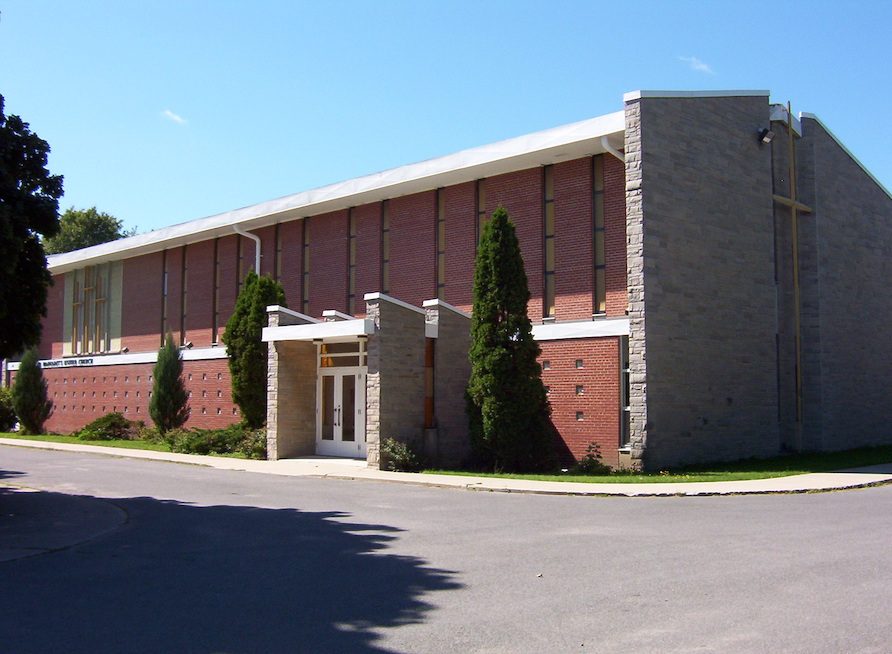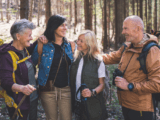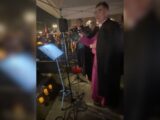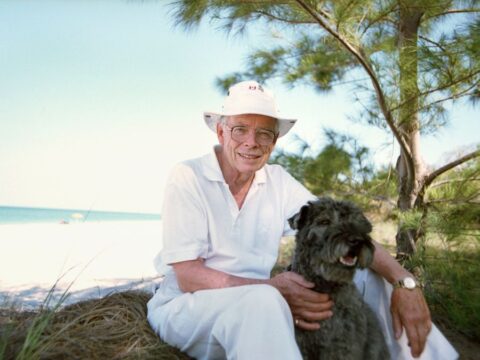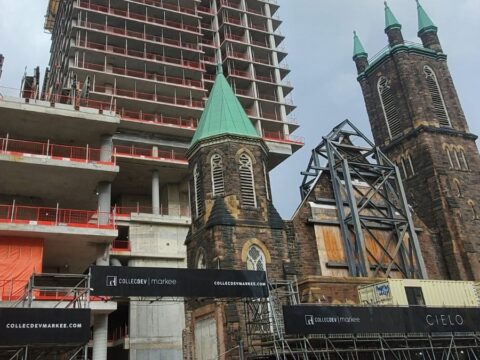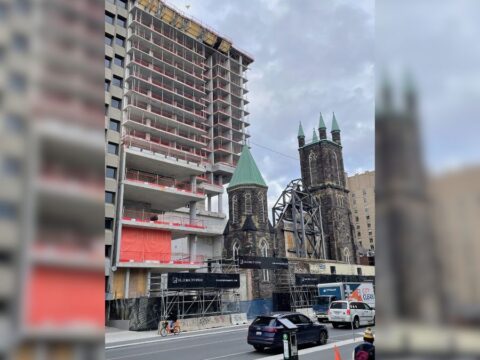A Kingston, Ont., program providing private sleeping cabins for people experiencing homelessness is slated for cancellation by the end of the year. But a recent offer from a local United Church may be enough to save the project and give it a permanent home.
Like many other Canadian cities, Kingston is in the midst of a homelessness crisis. As of March, there were 539 unhoused people on the city’s By-Name list, a registry for unhoused people meant to provide the community with real-time information on homelessness. By contrast, there are only 166 shelter beds available.
You may unsubscribe from any of our newsletters at any time.
In 2021, the City of Kingston partnered with Our Livable Solutions (OLS), an organization dedicated to addressing homelessness in the community to launch a pilot project called the Sleeping Cabin Program to address the crisis. In its first year, the project saw the creation of 10 heated and insulated cabins that were financially supported by the city, but overseen day-to-day by OLS. Today, there are 17 cabins – and 17 residents – that will be affected by the program’s cancellation.
There have been challenges over the past three years. Since there wasn’t anywhere that could host the cabins year-round, they had to be moved between two city-owned facilities (a marina and an ice rink during their respective off seasons), where residents could access kitchens, laundry, and washrooms. A fire also destroyed three of the cabins in late 2022. Despite this, Chrystal Wilson, executive director of OLS, describes the program as a success, pointing out that it has led to more permanent housing for three former residents. But last November, Kingston city council voted to end the project this fall, citing high operating costs and the fact that the cabins were only meant to be a stopgap pandemic solution. Without access to city funding, land, and facilities, the project will have to end if a new home can’t be found.
Just three days after that vote, Rev. Carmen Lansdowne, moderator of The United Church of Canada, spoke at Kingston’s Crossroads United as part of her Flourishing Project, an initiative which sees the moderator engage church members on how to create a society that’s flourishing instead of just surviving. “What is one positive thing, one imaginative thing that you can do in your faith communities?” Lansdowne asked.
More on Broadview:
Crossroads council member Allan Baer says that question gave the church an idea. It had an empty eighth of an acre on its property. Could that be used to host the sleeping cabins?
When a second vote by city councillors in mid-April reaffirmed the conclusion of the program, Crossroads began to seriously consider taking over the project. Ahead of a vote on the matter at their congregational meeting on June 2, Baer drafted a document to provide parishioners with information about what hosting the cabins would entail. Under the subheading “Why?” he quoted the Gospel of Matthew: “I was hungry and you fed me; thirsty, and you gave me a drink; I was a stranger and you received me into your homes.” The motion to host the cabins was approved by a wide margin.
There are still some hurdles that Crossroads will need to clear before the cabins can be moved onto their property. A service module with washrooms, shower, laundry facilities and a kitchen will need to be added to the site, and the church will have to figure out how to hook up the utilities needed to operate the cabins. Crossroads also still needs to get city council’s approval, which will mean reassuring residents in the neighbouring apartment buildings that the program won’t negatively impact their lives.
But an initial meeting with city council has left Baer feeling optimistic, and the church wouldn’t be working alone, since OLS would continue to oversee day-to-day operations at the cabins. The church has even come up with a name for the project: Crossroads Village. Baer says that they hope it evokes a sense of community for everyone involved, from those living in the cabins, to the Crossroads parishioners, to neighbours in nearby apartment buildings and townhouses.
It’s all been a bit of a whirlwind for the church but, says Baer, it feels like an instance of being in the right place at the right time. He adds that God doesn’t always provide a leisurely approach to these kinds of things. Sometimes He, like city council, operates on tight deadlines.
***
Anne Thériault is a journalist in Kingston, Ont.

